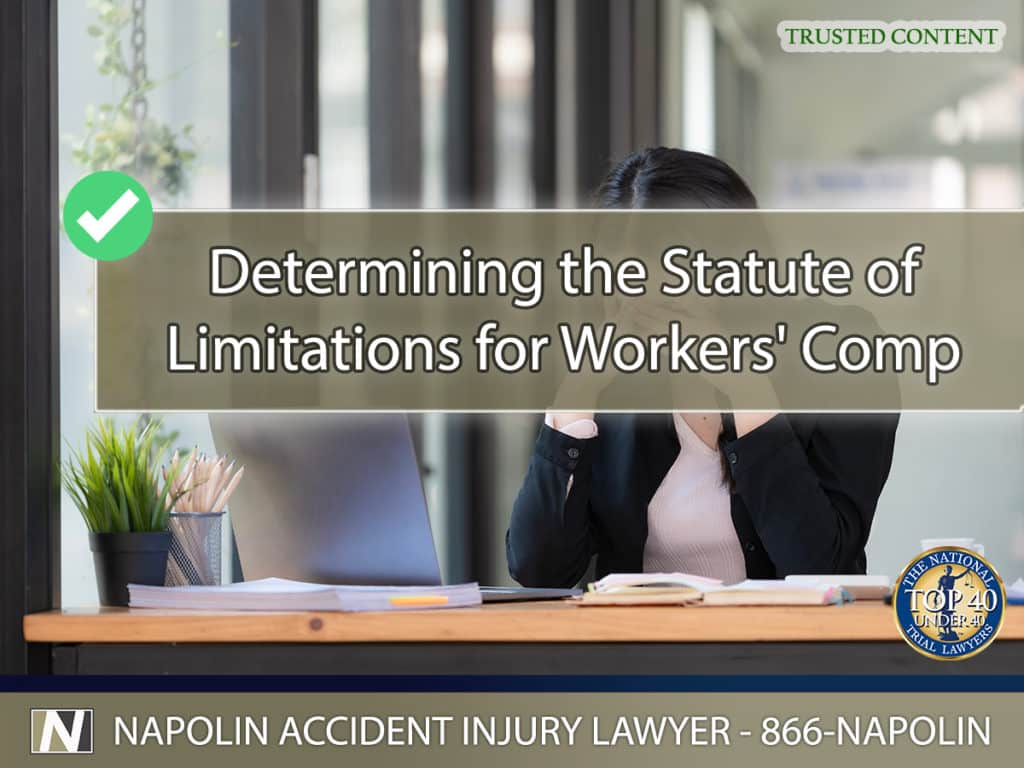In the realm of workers' compensation in California, understanding the statute of limitations is paramount for workers who have suffered injuries on the job. This legal framework sets the deadline for when an injured worker must file a claim to be eligible for compensation benefits. The intricacies of these rules and their exceptions are vital for ensuring that injured workers do not forfeit their rights to necessary medical care, disability benefits, and rehabilitation support due to a missed deadline.
Understanding the Workers' Comp Statute of Limitations in Depth
Understanding the Workers' Comp Statute of Limitations in Depth
The statute of limitations for workers' compensation claims in California is primarily governed by the principle that injured workers have one year from the date of injury to file their claim. This period is designed to encourage prompt reporting and processing of injuries, facilitating timely medical treatment and compensation. However, the start date of this one-year period can vary based on several factors, including the nature of the injury and the circumstances under which it was discovered.
Immediate vs. Delayed Injury Reporting
For injuries that are immediately apparent, the clock starts ticking on the date of the injury. In contrast, for injuries or illnesses that develop over time, such as repetitive stress injuries or occupational diseases, the statute of limitations may not begin until the worker becomes aware or should have become aware of the injury's connection to their employment. This distinction underscores the importance of understanding how different types of injuries can affect the filing deadline.
Notification Requirements
California law also mandates that injured workers notify their employers about the injury or illness within 30 days of its occurrence or discovery. Failure to meet this notification requirement can complicate the claim process, although exceptions may apply in cases where the employer was already aware of the injury or in situations where the delay in notification can be reasonably justified.
Exceptions to the Standard Workers' Comp Statute of Limitations
Exceptions to the Standard Workers' Comp Statute of Limitations
Several exceptions can extend the standard one-year filing deadline, providing injured workers with additional time under specific circumstances.
Discovery Rule Application
The discovery rule applies to cases where the injury or illness was not immediately apparent, granting an extension to the filing deadline. This rule acknowledges that some conditions, particularly those related to exposure to harmful substances or cumulative trauma, may only become evident after a significant period.
Cumulative Trauma and Occupational Diseases
For cumulative trauma disorders and occupational diseases, the statute of limitations is triggered when the worker knows or should know that the injury is work-related and has caused disability. This acknowledgment often comes in the form of a medical diagnosis linking the condition to the individual's employment.
Minors and Dependent Claims
Injured workers who are minors at the time of the injury receive an extension, with the statute of limitations not beginning until they reach the age of majority (18 years). Additionally, dependents of a worker who dies due to a work-related injury have one year from the date of death to file a claim for death benefits, provided the death occurred within 240 weeks of the injury.
Employer Misconduct
If an employer has engaged in misconduct, such as failing to provide legally required workers' compensation insurance or intentionally misleading an employee about their rights, the statute of limitations may be tolled or extended. This provision ensures that workers are not disadvantaged by their employer's unlawful actions.
The Critical Role of Timely Filing
Timely filing within the statute of limitations is crucial for preserving your right to workers' compensation benefits. Missing the deadline can lead to the denial of your claim, leaving you without access to essential medical treatment and financial support during your recovery. Understanding the specific deadlines and exceptions that apply to your case is essential for navigating the workers' compensation system effectively.
How Napolin Accident Injury Lawyer Can Assist
At Napolin Accident Injury Lawyer, we understand the complexities of workers' compensation laws in California, including the critical importance of the statute of limitations. Our team is dedicated to guiding injured workers through the claim process, ensuring that they meet all legal requirements and deadlines. If you've suffered a work-related injury, don't navigate this challenging time alone.
Determining the Statute of Limitations for California Workers' Comp Claims
Determining the Statute of Limitations for California Workers' Comp Claims
The statute of limitations for workers' compensation claims in California is designed to ensure that injured workers promptly seek the benefits they deserve. However, the various exceptions and nuances of the law highlight the importance of obtaining knowledgeable legal guidance. If you or a loved one has been injured at work, contact Napolin Accident Injury Lawyer at (909) 962-8415 for a free consultation. Our extensive experience in workers' compensation law means we're well-equipped to help you secure the compensation you need to recover and move forward.

